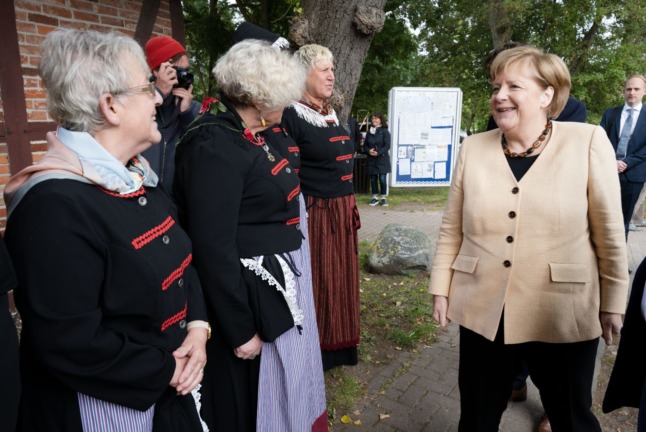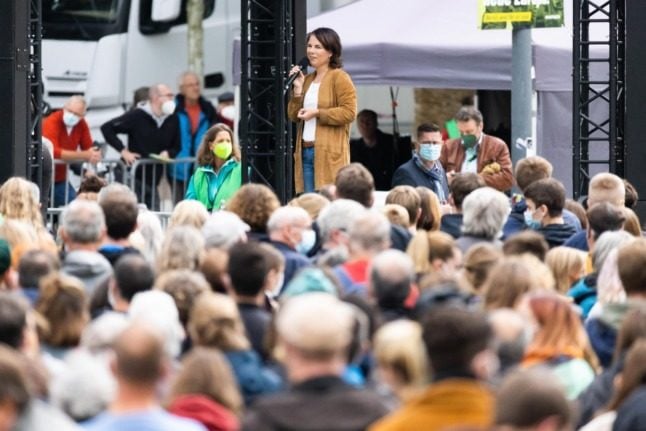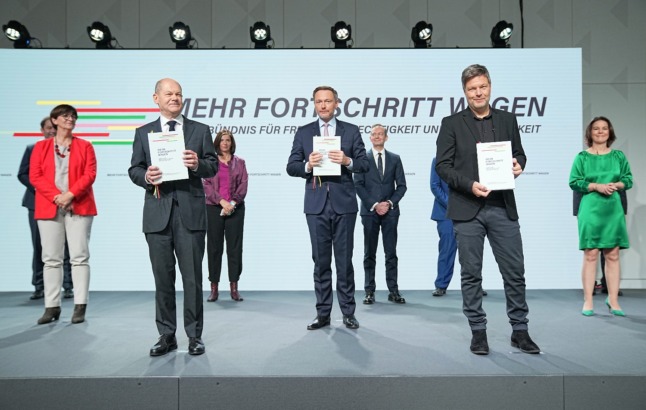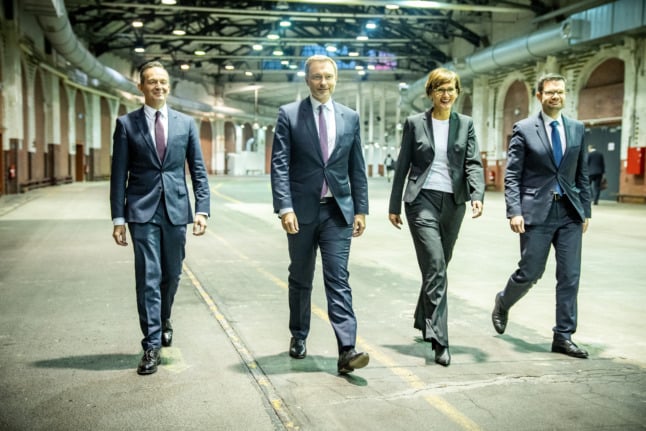‘Full steam ahead’ on tackling climate change
The Greens’ chancellor candidate Annalena Baerbock says Germany must go “full steam ahead on climate protection”.
The coal phase-out should take place well before 2030, Baerbock said at an election campaign event in Freiburg. The restructuring of industry must be accelerated because “the markets of the future are climate neutral,” she said. Here, she added, industry is already further ahead than the German government.
And on the topic of climate change, the Social Democrat’s candidate chancellor Olaf Scholz has accused his rival party – the CDU/CSU – of failure when it comes to Germany’s energy policy.
Scholz, who is currently leading in the polls, took a swipe at German Economics Minister Peter Altmaier, saying he had failed to adapt the country’s industrial policy.
During an election campaign event in Wolfsburg, Scholz said the CDU/CSU had denied for years that there would be a massive increase in demand for electricity due to the transformation of industry toward climate neutrality.
Coalition fighting talk from Laschet
Armin Laschet, the CDU/CSU candidate for chancellor, has warned the pro-business FDP against forming a coalition with the SPD and the Greens.
“In a traffic light (Ampel) coalition, the FDP would be constantly threatened with expulsion – because the Left would immediately be standing by. And (FDP leader) Christian Lindner knows that the Union is a reliable partner,” the CDU politician said on Tuesday.
A so-called traffic light coalition – an alliance between the FDP (yellow), the Greens and the SPD (red) – would have a majority according to current polls. But Laschet’s fighting talk may be going to waste – according to Lindner, the FDP has little in common with the SPD and Greens anyway.
Free Voters target AfD supporters
In Bavaria, the head of the Free Voters (Freie Wähler), Hubert Aiwanger, says he is canvassing for votes from potential AfD (Alternative for Germany) supporters shortly before the federal election.
“Votes for far-right parties primarily benefit the left-wing parties, which only come into government as a result,” Aiwanger said.
“Germany needs a liberal-value-conservative force in the Bundestag that is capable of forming a coalition,” he said, referring to his own party.
“The Free Voters take the concerns of citizens seriously and therefore in many cases prevent people from voting AfD out of frustration.” The Free Voters govern in Bavaria in a coalition with the CSU and are also represented in the state parliaments of Rhineland-Palatinate and Brandenburg.
What do the polls say?
The latest polls show the SPD, with 25 percent, still a couple of points ahead of the CDU/CSU with 22 percent. The Greens stand at 17 percent, the AfD and the FDP are at 11 percent, and Die Linke (the Left) are at six percent.
BUNDESTAGSWAHL | Sonntagsfrage Forsa/RTL/n-tv
SPD: 25%
Union: 22% (+1)
GRÜNE: 17%
AfD: 11%
FDP: 11%
LINKE: 6%
FW: 3%
Sonstige: 5% (-1)Änderungen zur letzten Umfrage vom 14. September 2021
Verlauf: https://t.co/hsxgiAoruC#btw #btw21 #BTWahl2021 pic.twitter.com/jHgFEvapt3
— Deutschland Wählt (@Wahlen_DE) September 21, 2021
Merkel bids goodbye to Stralsund
Angela Merkel visited her constituency for the last time as chancellor on Tuesday, along with her would-be successor Armin Laschet, who is badly in need of a boost just days before the country goes to the polls, AFP reported.
in 1990, Merkel won the seat in constituency 267, which includes the Baltic Sea town of Stralsund and the island of Rügen, beginning her journey to the chancellery.

Even after 16 years holding the reins of the Bundesrepublik, Merkel “basically hasn’t changed,” Molkentin told AFP, sitting at the table where he once welcomed her for coffee and cake.
“She was a very simple, stable and trustworthy person, which she still is,” said the octogenarian of Merkel, who will step down after Sunday’s elections following four consecutive terms as chancellor.




 Please whitelist us to continue reading.
Please whitelist us to continue reading.
Member comments